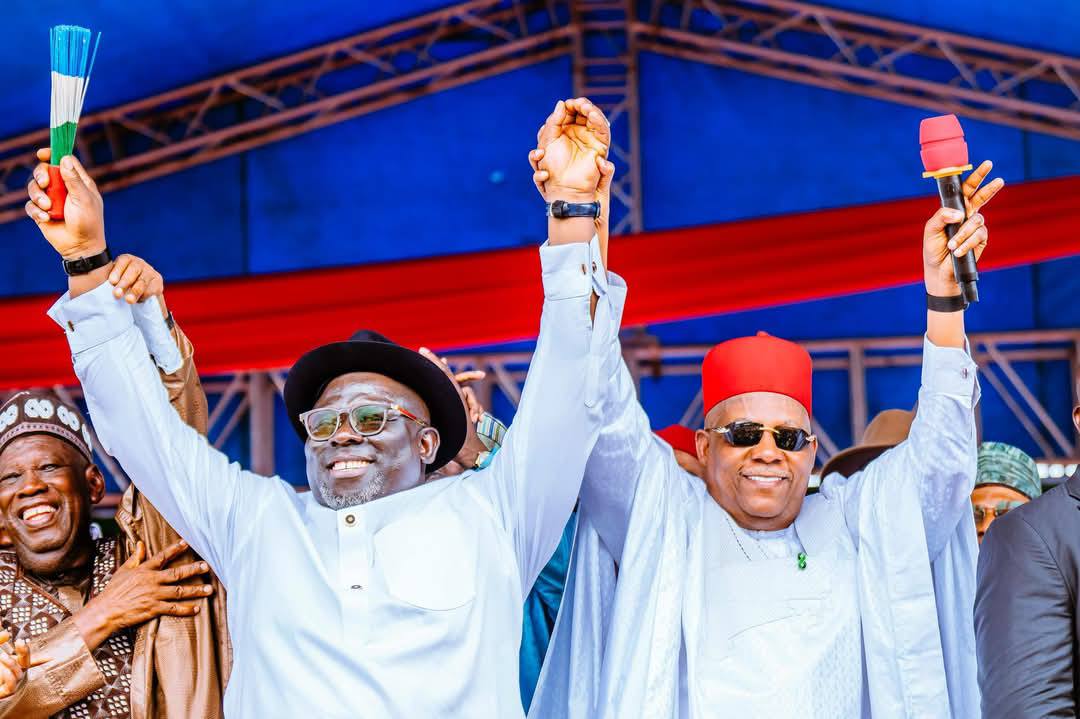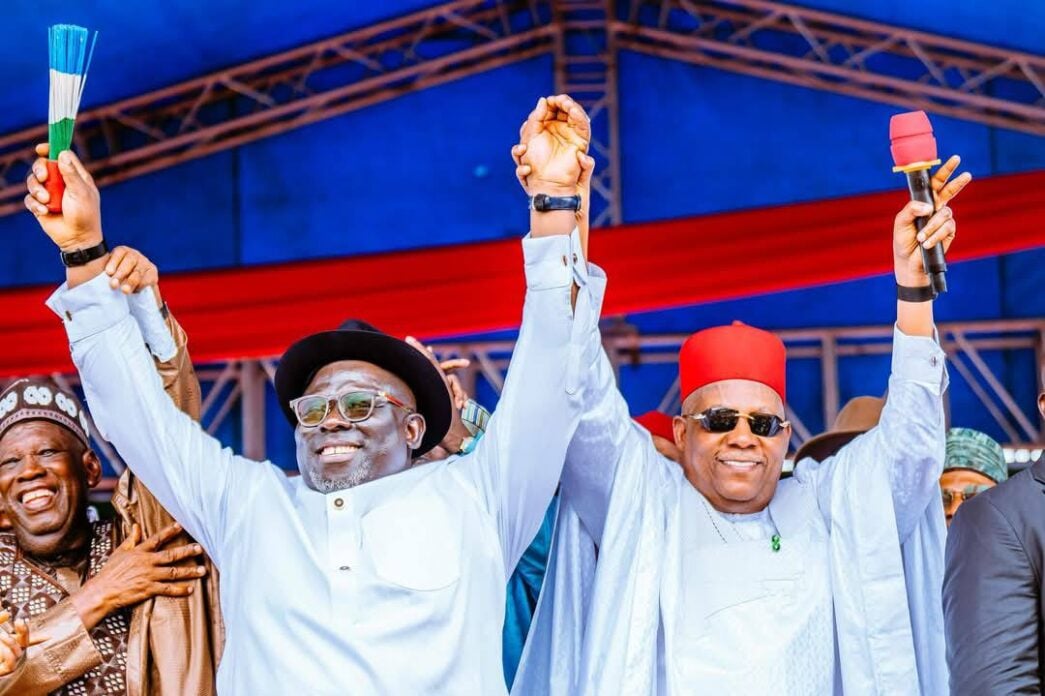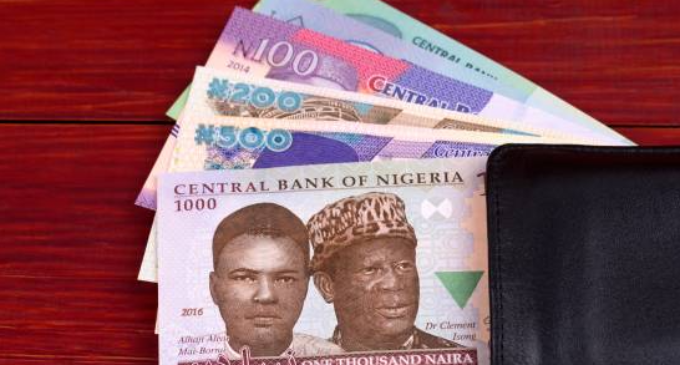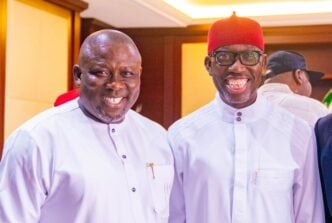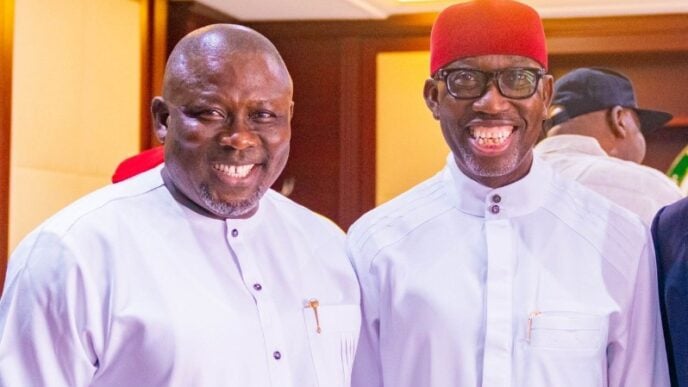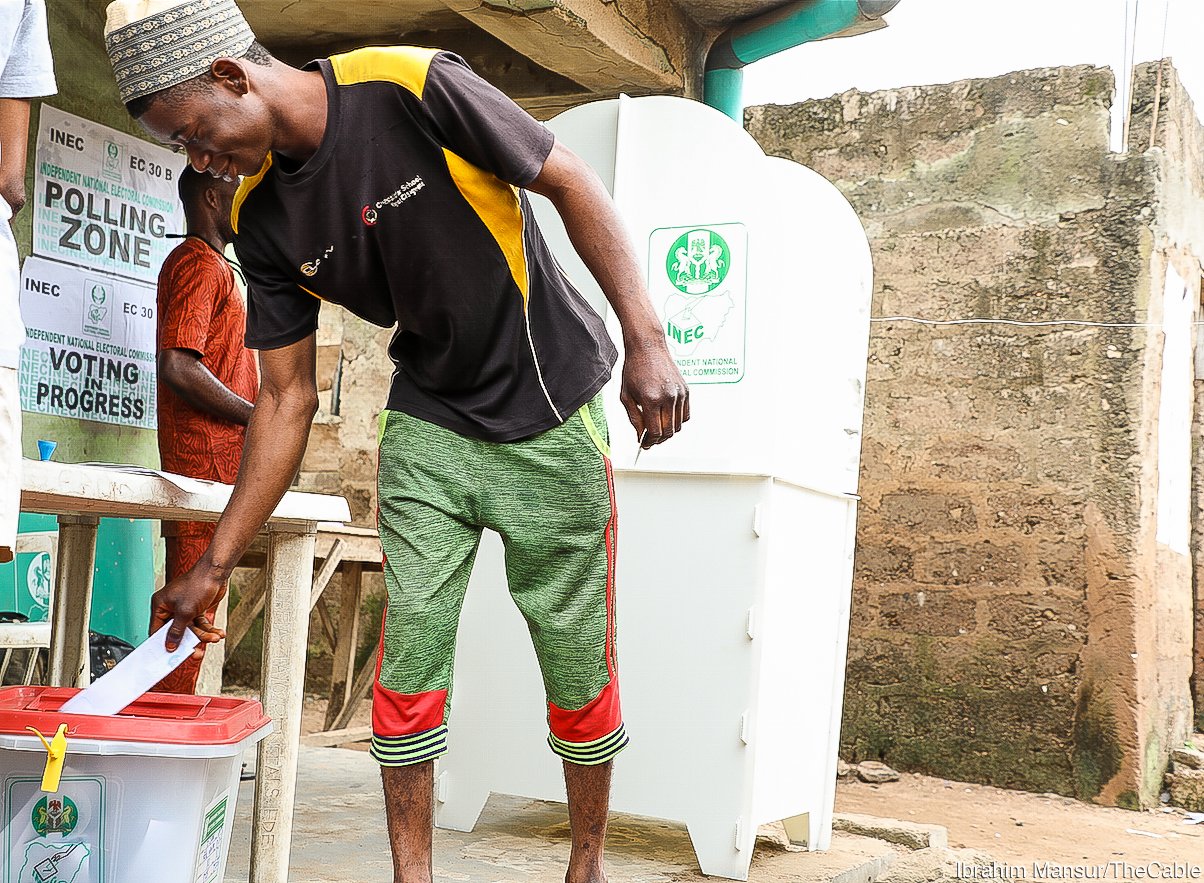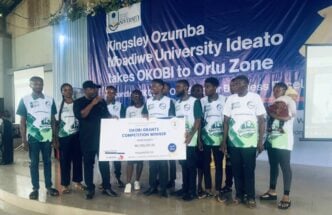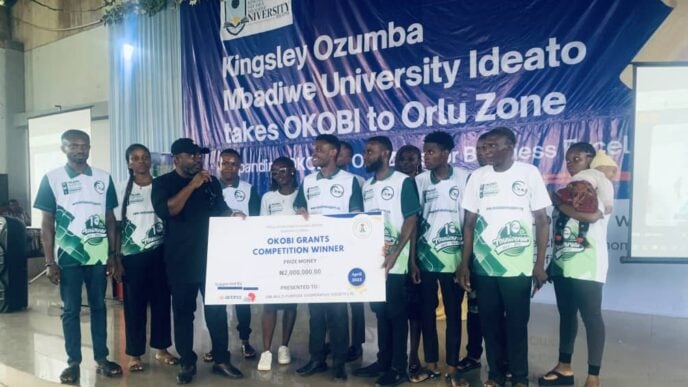Recently, two prominent politicians from the Peoples Democratic Party (PDP) defected to the ruling All Progressives Congress (APC). This is not surprising. Nigerian politicians switching allegiance to serve their personal interest is fast becoming yesterday’s news.
Defection has become a defining feature of our politics, with politicians treating political affiliation like a costume to be discarded after use. This revolving-door politics reflects a deeper issue – a total absence of ideological commitment to party by the political elites.
Unlike democracies in the United States and Europe, where parties are anchored in distinct ideological traditions, Nigerian parties are ideologically indistinct. The PDP and APC are largely two sides of the same coin. For their members, party loyalty is transactional, not principled.
For many Nigerian politicians, political parties are not platforms for public service but vehicles that drive their personal ambition. They hop on to a party when the destination is favorable and jump off the moment their ambition has been met, is threatened or uncertain.
Advertisement
Consider the APC, which brands itself as progressive. In 2015, it turned to Muhammadu Buhari, a former military ruler with questionable democratic credentials, as its presidential candidate. That decision alone casts doubt on any claim to ideological consistency.
This blurring of lines between parties has eroded public trust. To many Nigerians, elections feel less like a choice between competing visions for the country and more like a selection among members of the same political class. The result? A disengaged electorate, a weak opposition, and a culture of governance driven by proximity to power rather than loyalty to the people.
But this doesn’t have to be the status quo. This recent defection, as damaging as they seem, presents an opportunity for the PDP and other opposition parties to regroup and redefine their role in Nigeria’s democracy, especially with the 2027 general elections on the horizon.
Advertisement
To seize this moment, the PDP must act decisively on four key fronts:
First, the PDP must clarify what it stands for, not just in rhetoric, but in tangible policies and leadership behavior. This means revisiting its manifesto to reflect measurable, people-centered values, and maintain consistency between its positions at the national and grassroots levels.
Two, transparent primaries are crucial to strengthen internal democracy. The imposition of candidates must give way to merit-based leadership selection. A party that rewards competence and fairness is more likely to inspire loyalty, even during challenging periods like the present.
Also, the PDP can champion legal reforms on defections by pushing legislation that curtails opportunistic defections. Such laws should mandate the loss of elective seats for defectors whose exits are not rooted in genuine party crises. This would send a powerful message about accountability and party discipline, and help weed out unprincipled politicians.
Advertisement
Lastly, an informed and politically aware citizenry is the strongest ally of any opposition. The PDP must invest in civic education campaigns that explain its values and governance vision. These efforts should leverage media, faith institutions, youth networks, and civil society organizations to reach Nigerians where they are, especially at the grassroots.
Yes, Nigerian politics may often resemble a game of power for power’s sake. But if the PDP embraces reform, builds ideological clarity, and engages citizens meaningfully, it can reshape the political culture – moving it from an era of opportunism to one of principle.
As defections continue to weaken the opposition, the PDP and other opposition parties must rethink their structure and reawaken the civic consciousness of Nigerians. The survival and future of our country’s fragile democracy depends on it.
Maduekwe is the founder of Discussing Africa. He can be reached at [email protected]
Advertisement
Views expressed by contributors are strictly personal and not of TheCable.

